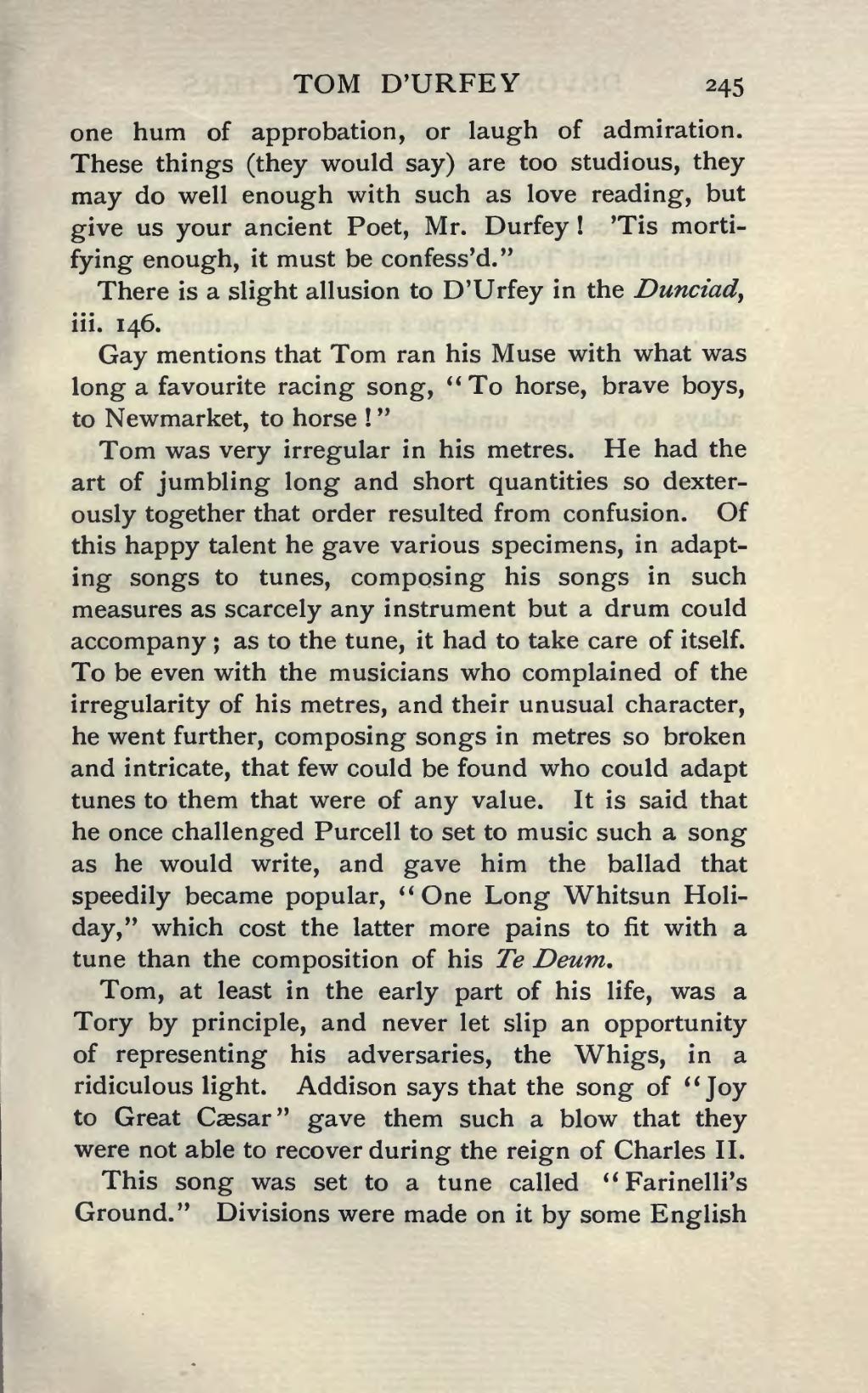one hum of approbation, or laugh of admiration. These things (they would say) are too studious, they may do well enough with such as love reading, but give us your ancient Poet, Mr. Durfey! 'Tis mortifying enough, it must be confess'd."
There is a slight allusion to D'Urfey in the Dunciad, iii. 146.
Gay mentions that Tom ran his Muse with what was long a favourite racing song, "To horse, brave boys, to Newmarket, to horse!"
Tom was very irregular in his metres. He had the art of jumbling long and short quantities so dexterously together that order resulted from confusion. Of this happy talent he gave various specimens, in adapting songs to tunes, composing his songs in such measures as scarcely any instrument but a drum could accompany; as to the tune, it had to take care of itself. To be even with the musicians who complained of the irregularity of his metres, and their unusual character, he went further, composing songs in metres so broken and intricate, that few could be found who could adapt tunes to them that were of any value. It is said that he once challenged Purcell to set to music such a song as he would write, and gave him the ballad that speedily became popular, "One Long Whitsun Holiday," which cost the latter more pains to fit with a tune than the composition of his Te Deum.
Tom, at least in the early part of his life, was a Tory by principle, and never let slip an opportunity of representing his adversaries, the Whigs, in a ridiculous light. Addison says that the song of "Joy to Great Cassar" gave them such a blow that they were not able to recover during the reign of Charles II.
This song was set to a tune called "Farinelli's Ground." Divisions were made on it by some English

